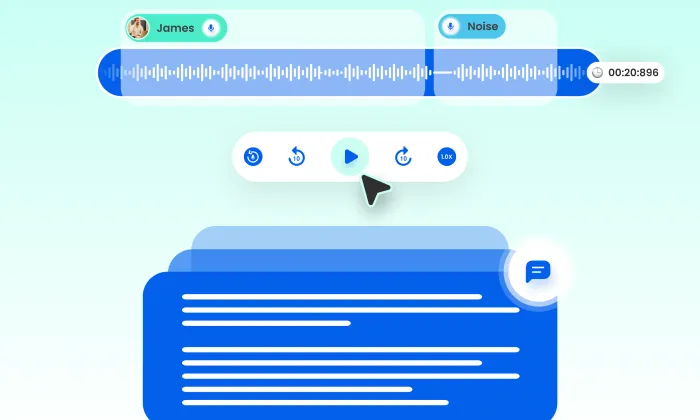What is Metadata in Speech Datasets?
Speech Datasets
Data Annotation
Speech AI
Metadata in speech datasets is crucial for making audio data more useful and easier to interpret. By providing context and detailed descriptions, metadata allows AI engineers, product managers, and researchers to effectively utilize datasets for applications like automatic speech recognition (ASR), text-to-speech (TTS), and speaker identification.
What Is Metadata?
Metadata is essentially data about data. In speech datasets, it includes various attributes linked to audio recordings, such as:
- Speaker Information: Details like age, gender, accent, and dialect.
- Recording Conditions: Environment specifics like background noise levels, microphone type, and whether the recording was done indoors or outdoors.
- Audio Specifications: Technical details like sample rate, bit depth, and audio format.
- Contextual Tags: Information about the speech content, such as topic, intent, and emotional tone.
This enriched layer of information is vital for ensuring that audio data can be effectively used and analyzed in training machine learning models.
Why Metadata Matters
Metadata significantly enhances the quality and utility of speech datasets by:
- Improving Data Quality: It offers crucial context, helping prevent misinterpretation or misuse of audio data. Engineers can filter and select datasets based on metadata tags, ensuring better alignment with specific tasks.
- Boosting Model Performance: Detailed metadata supports the development of more robust models. For example, knowing speaker demographics aids in creating models sensitive to accent variations, enhancing real-world performance.
- Ensuring Ethical Use: Metadata can include compliance-related information, such as consent forms and usage rights, aligning with data privacy laws and ethical standards.
Implementing Metadata in Speech Datasets
The use of metadata involves a systematic approach:
- Data Collection: All relevant details are captured during audio recording. Platforms like FutureBeeAI’s Yugo platform facilitate contributor onboarding and demographic verification.
- Annotation: Trained annotators enrich datasets with metadata, adding tags for speaker information, environmental conditions, and more.
- Quality Assurance: A robust QA process ensures metadata accuracy and completeness, aligning it with audio data to avoid errors.
- Integration: Metadata is integrated with audio files to be easily accessible during model training or analysis, often via structured file naming or databases.
Real-World Impacts & Use Cases
Metadata has profound real-world applications. For instance, a customer service AI model can use metadata to improve dialect recognition, leading to better customer interactions. In healthcare, metadata can ensure speech datasets meet compliance standards, providing secure, high-quality training data.
Common Challenges in Metadata Management
Creating and managing metadata involves decisions and trade-offs, such as:
- Level of Detail: More detailed metadata enhances usability but requires more resources to collect and annotate.
- Standardization vs. Flexibility: Standardized formats promote consistency, while flexible formats capture unique dataset aspects.
- Resource Allocation: Sufficient personnel and budget are necessary to ensure metadata is a priority and not an afterthought.
Conclusion
Metadata in speech datasets enriches audio data, improving model training and analysis. By carefully managing metadata collection, annotation, and integration, teams enhance their datasets' quality and usability. As AI models evolve, effective metadata practices are crucial for success.
FAQs
What types of metadata are essential in speech datasets?
Key metadata includes speaker demographics, recording conditions, audio specifications, and contextual tags. These elements provide a deeper understanding of audio data, aiding various AI tasks.
How does metadata affect AI model performance?
Poor or missing metadata can lead to misinterpretations, resulting in underperforming models. Accurate metadata ensures models handle diverse accents or dialects effectively, improving applications like ASR or text-to-speech dataset.
For AI projects requiring comprehensive metadata management, FutureBeeAI offers expert services in speech data collection and annotation, ensuring your models have the high-quality data they need to succeed.
What Else Do People Ask?
Related AI Articles
Browse Matching Datasets
Acquiring high-quality AI datasets has never been easier!!!
Get in touch with our AI data expert now!








